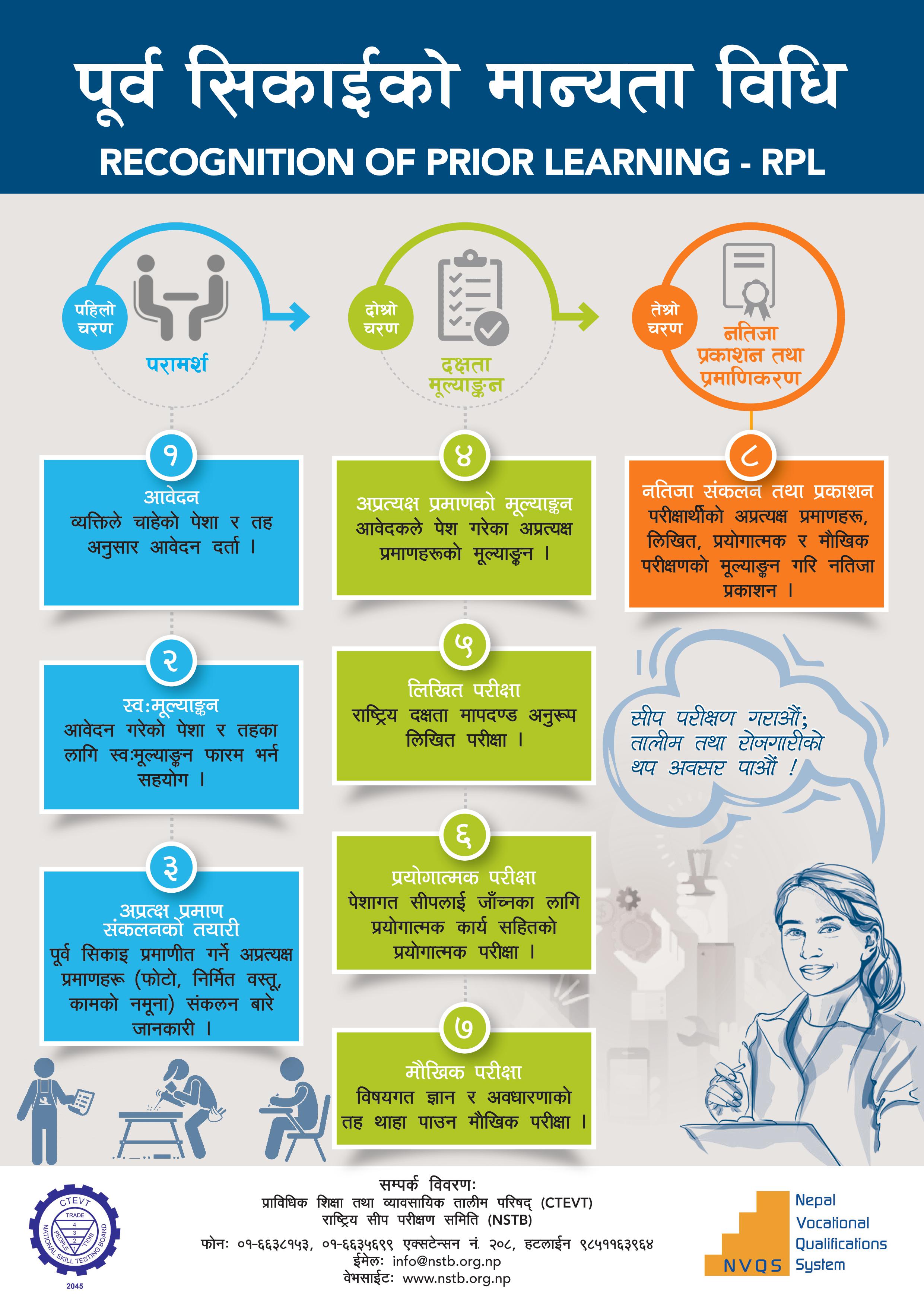About RPL
Recognition of Prior Learning (RPL) is the process by which individuals' knowledge and skills acquired outside of formal education and training are assessed against national competency standards. These skills may have been obtained through work experience, observation, self-practice, or other informal means.
Recognition of Prior Learning (RPL) is the process by which individuals' knowledge and skills acquired outside of formal education and training are assessed against national competency standards. These skills may have been obtained through work experience, observation, self-practice, or other informal means.
RPL offers several benefits, including the formal recognition of work experience, saving time and money compared to formal education, identifying areas for further training or experience, and boosting confidence and self-esteem.

RPL is a Process
It is the assessment of an individual’s previous learning obtained outside the formal education and training system to meet the standards as defined in the respective National Occupational Skills Standards (NOSS). Learning outside the formal system is acquired through:
1. Non-formal learning: This refers to organized programs with broad learning objectives which may or may not be certificated but do not result to nationally recognized formal qualifications. Examples are self-directed, and/or certificated studies such as: seminars, conferences and workshops, short courses, and some distance learning courses.
2. Informal learning or experiential learning: These are unplanned and unstructured learning without any certifications and qualifications. Sources of experiential learning are:
- Work experience (full-time, part-time, or casual)
- Life experiences such as family duties and profession, voluntary and community work, and hobbies or leisure activities
- Coaching and mentoring activities
- Private study and research
- Overseas work experience
RPL is a Result
It is the granting of an award whether full or partial qualification to an individual in recognition of his/her competencies. The awards may either be:
Full Skills Certificate if the candidate is assessed competent in all the major tasks/units as stipulated in the NOSS; and Record of Achievements if the candidate is assessed competent in individual major tasks/units of the NOSS. To gain a full qualification, he is entitled to appear for reassessment of the remaining tasks as agreed with the RPL Assessor. Before applying for reassessment, he/she may be advised to undertake further experience or further training.
The RPL process consists of three main stages:
Consultation phase: Individuals undergo a consultation process to assess their existing skills and knowledge against competency standards. Guidance is provided to help them prepare for qualification at the relevant level.
Assessment phase: Qualified applicants proceed to a skill test, which is conducted at designated centers. Successful completion of the skill test leads to certification at the appropriate level.
Post-assessment phase: Certificates are awarded based on successful performance in the skill test. In cases where proficiency is not achieved at a specific level, certificates may be issued for successful units.
A generic flowchart for each stage has been developed to provide an easy way to understand the steps. There are explanatory notes that follow the flowcharts.
The 3 Stages and 8 Steps of the RPL Process
